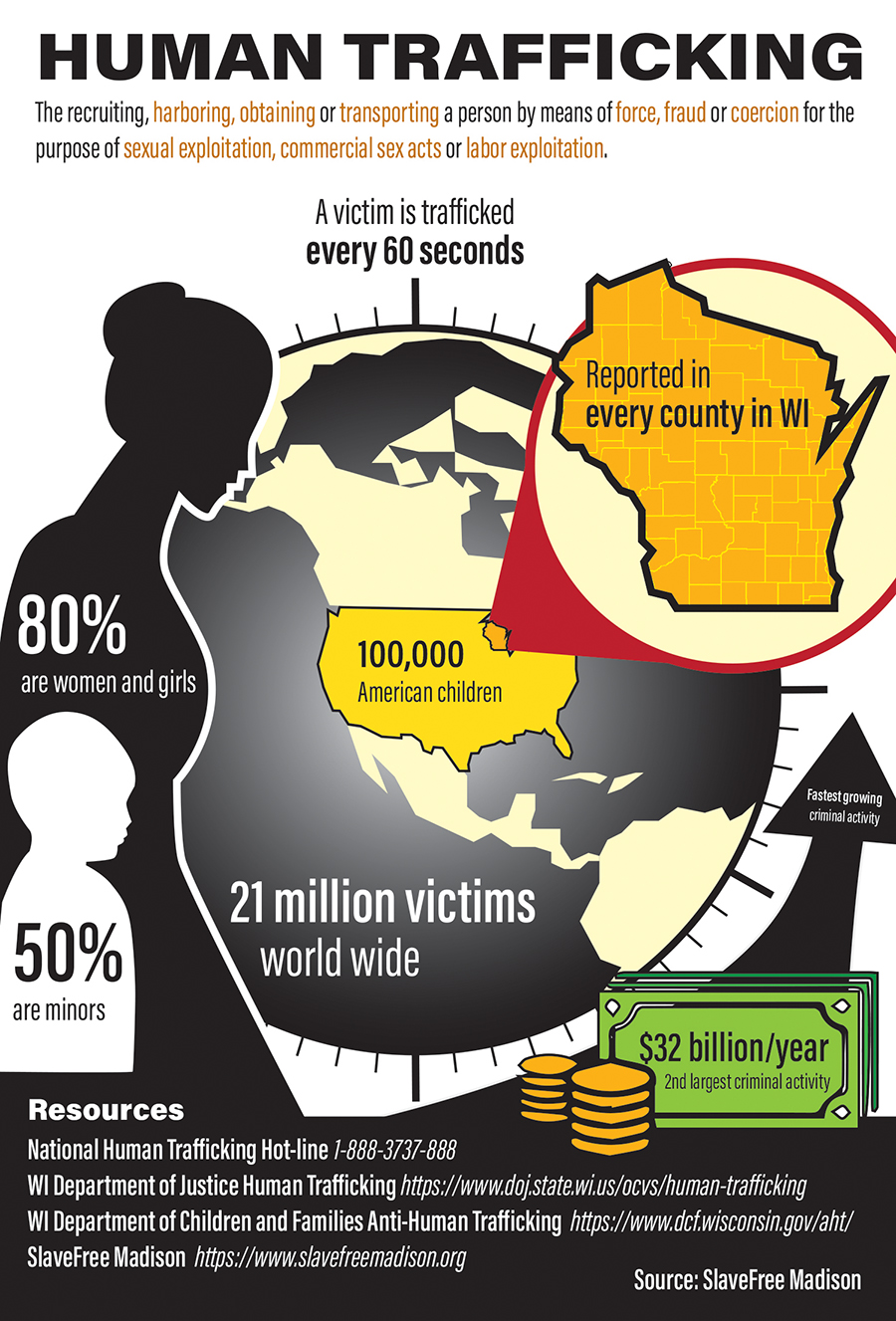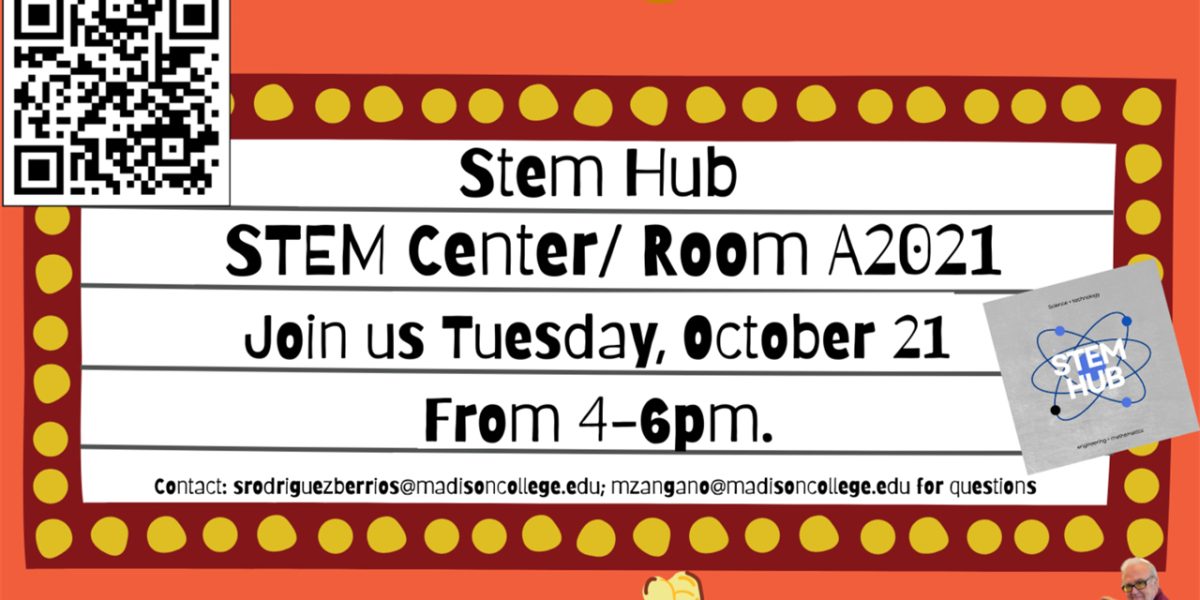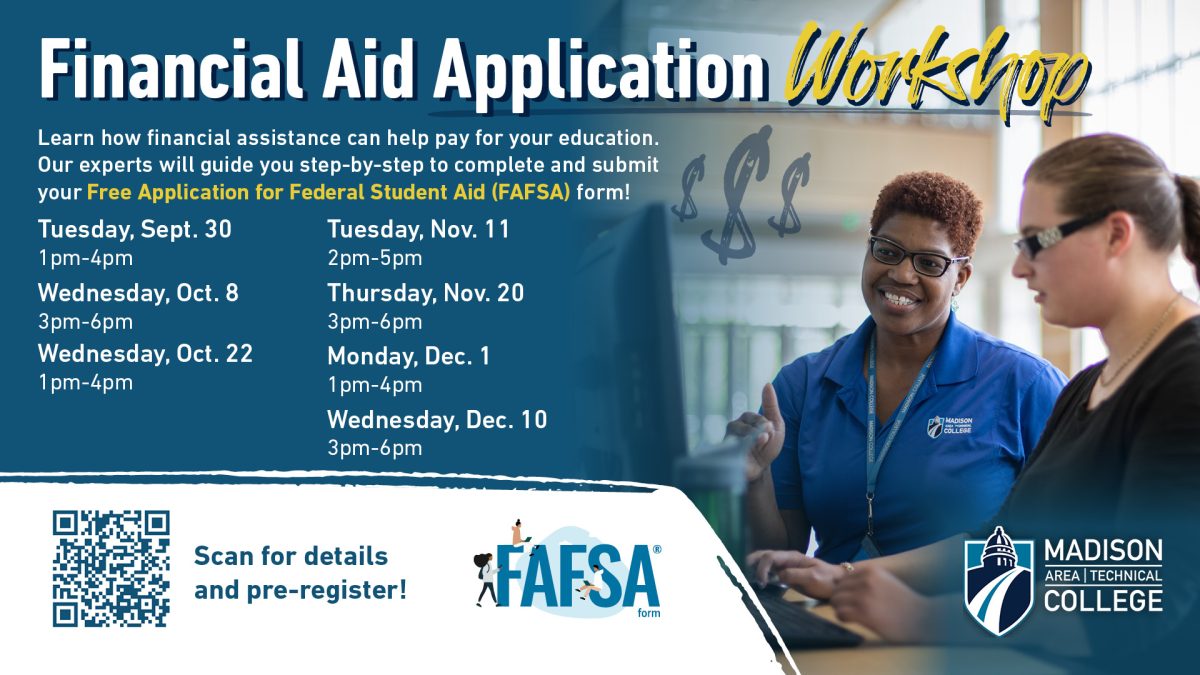A local and global issue
Human trafficking has impacted communities across the state
February 20, 2020

Source: SlaveFree Madison
“Human trafficking is not only prevalent, but it’s pervasive in Dane county and in Madison, and that’s why I’m here; if we don’t accept that it is an issue we will never put an end to it.”
This is how presenter, Ron Heinrich, described human trafficking’s proximity to Madison. Human trafficking is on the rise not only globally but is becoming a greater issue right on our doorstep in Wisconsin.
On Feb. 5, the Madison College Volunteer Center hosted an event featuring two speakers, Cheri Dubiel and Ron Heinrich, to share local opportunities to help trafficking victims and bring an end to the growing problem. The event was put together by Ricardo Marroquin as a way to bring these options to students.
“I saw that January was human trafficking awareness month and I then I knew that I wanted to feature the issue at a monthly meeting with the volunteer center,” Marroquin said.
“I wanted to bring presenters that would not only offer volunteer opportunities but also explain the issue and show how big of a problem it really is.”
The first presenter, Dubiel, showcased projects and groups for victims that the organization Community Shares of Wisconsin has to offer, such as marketing and advocacy on the issue. Similarly, the second presentation from SlaveFree Madison represented by Heinrich explained services their organization is doing, such as engraving the trafficking hotline phone number into bars of soap to be distributed to hotels. Furthermore, Heinrich’s presentation explained statistics, both worldwide and local, as well as provided insight into the magnitude and ramifications of human trafficking.
“The presentation I gave was mainly to provide an introduction to what human trafficking is and to provide people with some sense to how widespread it is,” Heinrich said.
Marroquin explained that he chose to contact the two organizations and ask that they come to Madison College because he felt human trafficking was a strong issue that should be talked about on campus without fear and is something he wants the school to be an advocate for.
“The numbers,” Marroquin said. “The numbers that were shared were very surprising to me. More than anything the thoughts I was left with were that I want to get involved and advocate for this cause as well as welcome more students to do the same.”
This feeling is not just an initial shock, Heinrich, who has been working with trafficking advocacy since 2016 and expressed that the disturbance does not ease, but grows as more information is taken in.
“What I found with human trafficking was that it’s an intersection of all kinds of things,” Heinrich said. “You can work on any aspect of social justice and it relates to human trafficking whether that be homelessness or traumatic experiences or toxic masculinity, just all kinds of things that come together at human trafficking. To me, that’s powerful and that just goes to show how truly important the matter is.”
Two themes present throughout the presentations were advocacy and awareness to be used as a catalyst for change.
“If we don’t do something to stop the issue, we’re contributing to it,” Marroquin said.































